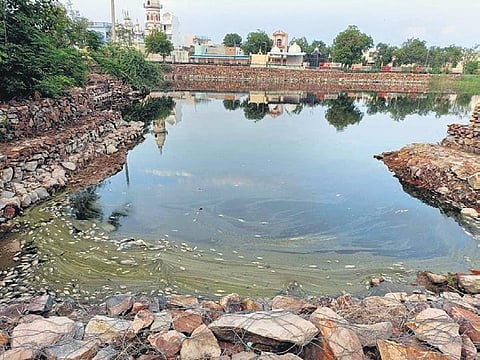

NAGARKURNOOL: During the ongoing breeding season for aquatic life, the Forest and Fisheries departments have officially imposed a ban on fishing in the Krishna river, especially in the Srisailam project and its backwaters. However, the alarming issue of illegal fishing persists, as fishermen from neighbouring regions pose a serious threat to aquatic and wildlife in the Nallamala forest area.
Fishing activities in the Krishna river span from Amaragiri village in Kollapur mandal to Vemulapaya stream and Geesugondi near Maddimadugu in Nagarkurnool district, extending up to the Nagarjuna Sagar Project (NSP) in Nalgonda district. This area falls under the Schedule 5 regions, where the Chenchu tribes have long resided and have recently been asserting their fishing rights as part of their community rights.
Hundreds of fishermen from Visakhapatnam in Andhra Pradesh have encroached on various locations, squatting at the inland tunnel in Eegalapenta on the Telangana side, Lingalagattu near Pathalaganga across the border, and even on Cheemala Thippa island on the Kurnool side of the border. These fishermen have secured political support from both sides and have been enticing Chenchu settlements with a nominal lease amount to fish on their behalf.
Given that July, August and September are critical months for the breeding of fish, tortoises, crocodiles and other aquatic life, fishing activities have been strictly prohibited during this period. This is also the mating season for tigers, who often cross the Krishna river, swimming between the two States.
Local Chenchus express concern that unless river monitoring is effectively conducted, illegal fishing will persist. The illegal fishermen discreetly place nets underwater without tying them to bamboo twigs to evade detection. Last month, forest officials seized the boats of some fishermen who had trapped and killed a crocodile in their nets. Despite political pressure from both sides of the border to release the culprits, the department remained firm and pursued legal action against them. The problem of these fishermen leaving the damaged and snapped fishing nets inside the river is a grave threat to aquatic wildlife, including the tiger.
The issue of these fishermen leaving damaged and snapped fishing nets in the river poses a grave threat to the ecosystem.
Although the matter of fishing rights is yet to be resolved amicably between the Chenchus living in Appapur Penta, the tribal communities urge the river party of the Forest Department to ensure that illegal fishing is halted within the river.
“There is a fire protection force comprising Chenchus which is formed every year from February till May, which monitors forest fires and takes steps to prevent them. A similar induction of Chenchus can be done to form a river protection force so that illegal fishing can be controlled during the breeding season. This force can also be used to remove the damaged fishing nets from the river during this season,” said Bala Guruvaiah, sarpanch of Appapur Penta.